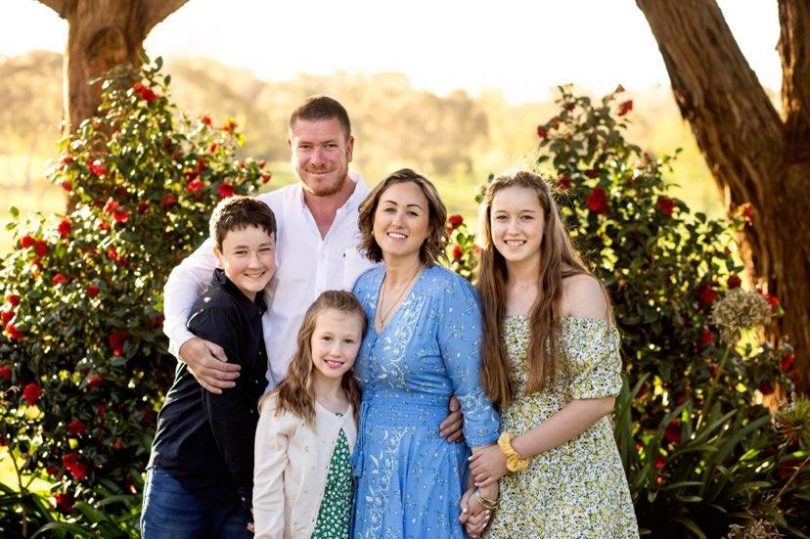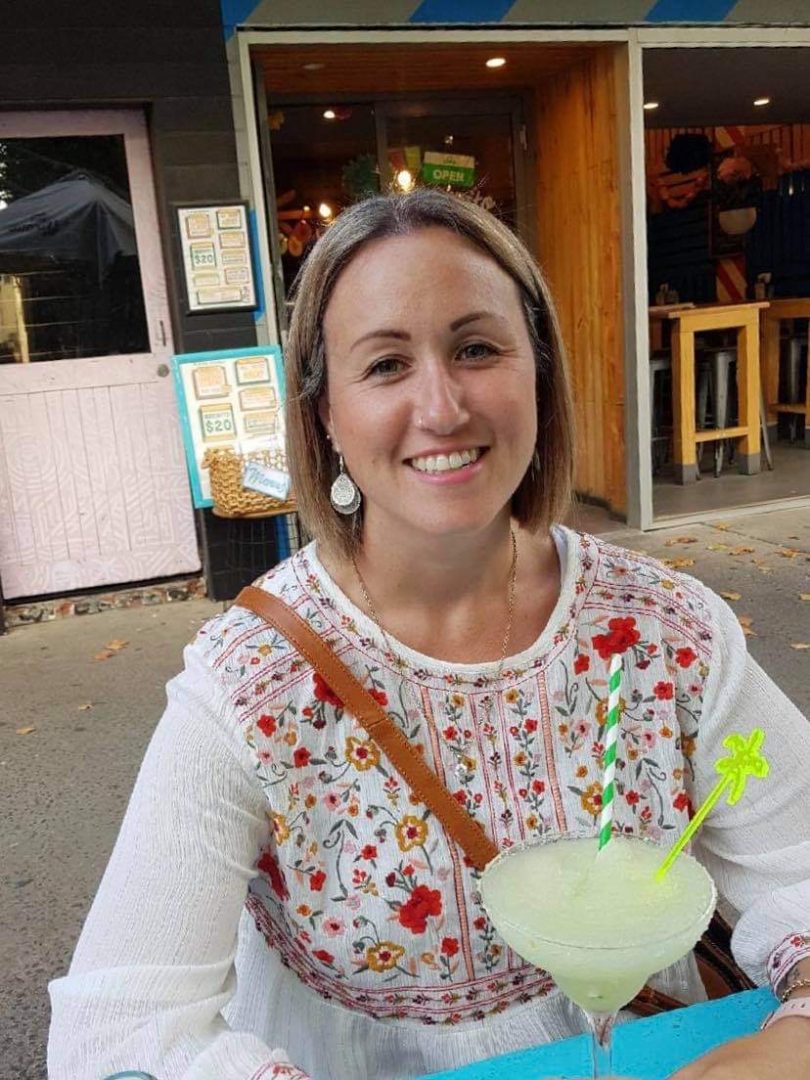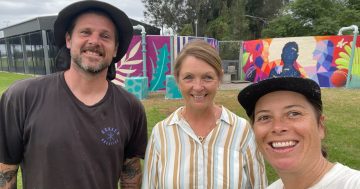
Crookwell egg donor Hayley Snape with husband Ben and their children, Billy, 13, Poppy, 7, and Isabel, 15. Photo: Renee Tucker.
Hayley Snape was aged 31, happily married and had three healthy children when she decided to give another couple a chance at starting their own family.
The Crookwell mother knew she wouldn’t be needing her eggs anymore and that they could be the missing ingredient to someone’s dream coming true.
“Sometimes I use a cake analogy when explaining it: they need to make a cake and have all the other special ingredients, except the eggs,” says Hayley.
Almost one in 20 babies in Australia are born through in vitro fertilisation (IVF) treatment and Hayley couldn’t believe the number of women aged in their 20s and 30s who were sitting in the IVF clinic when she was preparing to have her eggs harvested.
In fact, Hayley would have needed an egg donor if she’d waited until her late 30s or early 40s to try for a baby.
An anti-Mullerian hormone (AMH) test showed Hayley’s egg reserves were so low for her age that a doctor advised the Sydney-based recipients she had chosen against using her as their donor.
“On hearing this, I was so worried I had made a huge mistake and was going to let down this wonderful couple,” she says.
Hayley had met the couple on the Egg Donor Angels website, which helps recipients and donors find each other.
She thought they looked like nice, down-to-earth people and had her initial thoughts confirmed when they met in person.
The couple felt the same about Hayley and decided to ignore the doctor’s advice after experiencing many unsuccessful IVF cycles.
“They told me I was their last attempt and if using my eggs was unsuccessful, they would accept it and move on with life,” she says.
Egg donation in Australia is altruistic, which means people such as Hayley don’t get paid, although recipients can pay for reasonable expenses such as travel or medical costs. Hayley’s recipients covered her expenses and invited her to stay with them after the procedure in Sydney.
“The day of egg collection came so fast,” she says. “The nerves were a great distraction ahead of the procedure; I was more worried about how many [eggs would be retrieved] than what was about to happen.”
To Hayley’s surprise, the procedure was over in about 20 minutes and the doctor retrieved eight eggs. The recipient couple also fell pregnant with the first implant and are now parents to a healthy six-year-old girl.
Hayley was sure about her decision, but warns others against rushing in.
“It is invasive, sometimes painful, emotional and a very lengthy process,” she says. “Blood tests, ultrasounds, injections, more blood tests, more ultrasounds… it’s hardcore.”

Hayley says donating her eggs is one of the best things she’s ever done. Photo: Supplied.
Fortunately, Hayley’s husband, Ben, was supportive of her decision and they appreciated the mandatory counselling provided by the IVF clinic.
“They play the devil’s advocate and ask the really big questions because once they take your eggs, that’s it, it’s out of your control,” she says.
Under NSW law, a child born from a donated egg, sperm or embryo is deemed to be the child of the birth mother and donors are under no legal or financial obligation to the child.
While Hayley didn’t want to get in the way of her recipients parenting the child born from her donated egg, she did want to be a known donor – as opposed to an anonymous donor – and asked to keep in touch.
“I think children deserve to know how they were born, and their genetic and family history,” she says.
Hayley visited Sophie (not the child’s real name, to preserve her anonymity) three or four times in the first year and now they meet at least once a year.
“It is a little bit weird seeing her because she looks a lot like me, but I don’t think anyone would say she doesn’t look like her parents and it’s like I’m seeing a friend’s kid – I don’t feel anything extra,” says Hayley.
She has told her children about their half-sibling, and Sophie has some understanding of her history.
“My kids are very casual about it because I’m quite casual about it,” says Hayley. “I told my seven-year-old last year before Sophie visited and she looked at me with a bit of a frown because it’s a lot for a seven-year-old to wrap their head around, but it’s not something my kids lose sleep over.”
Hayley hopes her story will encourage other women to become donors and raise awareness about the options for people facing infertility.
“Why not help make someone’s dream come true?” she asks. “I have something someone else needs; something so tiny, but so important. It’s an act of kindness; a very special gift.”
Original Article published by Hannah Sparks on About Regional.













